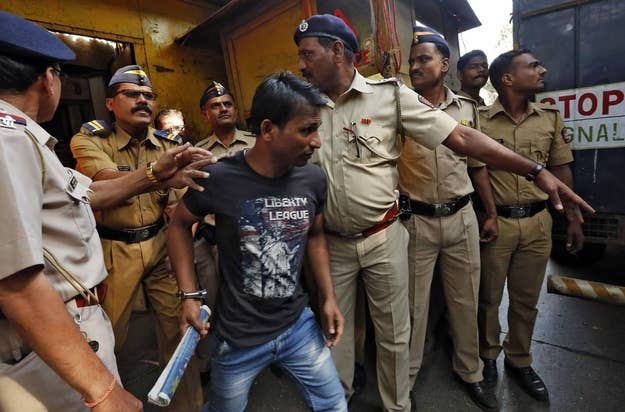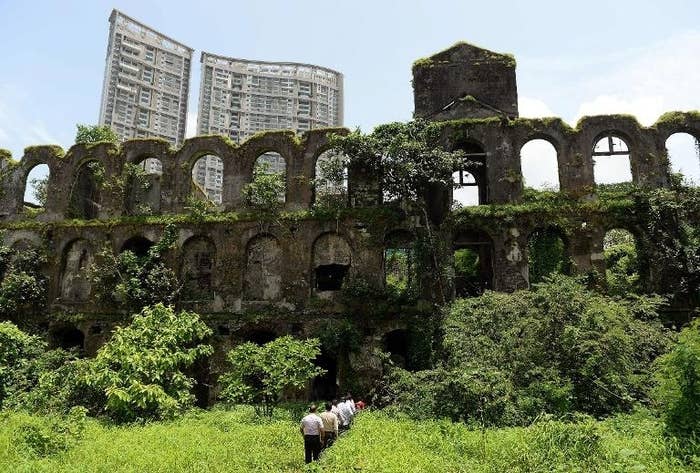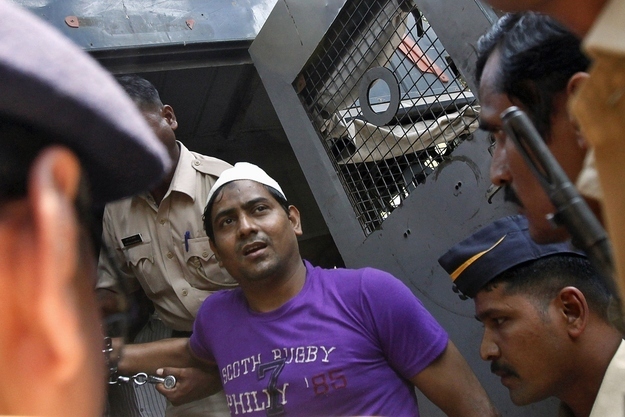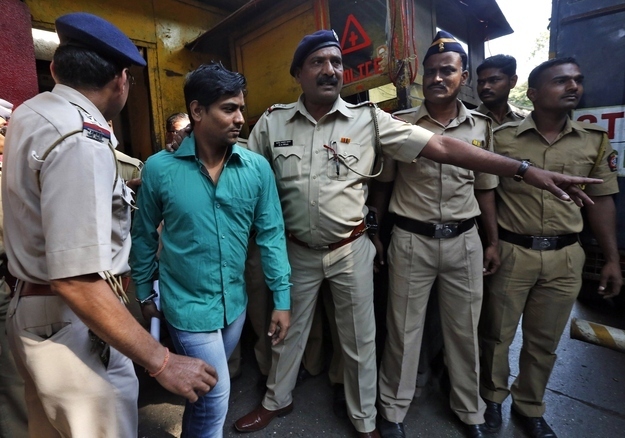
A court in Mumbai sentenced four men to life imprisonment on Friday, March 21, for gang raping a 19-year-old woman in an abandoned mill last July. The day before, the men were found guilty of rape, unnatural offense, criminal conspiracy, forceful confinement, and destruction of evidence.
Three of the men were also convicted of gang raping a 22-year-old photojournalist at the same textile mill located in one of Mumbai's most affluent areas in August 2013. The sentencing in this case will be decided Monday, March 24.
The three men convicted in both cases are Vijay Jadhav (19), Salim Ansari (27), and Kasim Shaikh (20). Additionally, Ashfaque Shaikh has been imprisoned for life in the case of the telephone operator, while Siraj Khan will be sentenced on Monday for the photojournalist's rape.
The 19-year-old telephone operator and her boyfriend were taking a shortcut through the mill to go to a nearby temple when they were dragged into a deserted spot by the men. The woman was sexually assaulted, but did not report the crime until a month later, when she learned that the photojournalist filed a police report about being gang raped in the same area.
The 22-year-old magazine intern, who visited the abandoned mill with a male companion for a photo assignment, was stripped, brutally raped, and forced to imitate pornographic acts that the men showed her.
While reading out the sentence, the principal judge said, "We must send a proper signal to society. Even if they were not reformed, others with criminal tendencies will be deterred."

The men's lawyers argued for leniency, citing poverty, lack of education and proper guidance, and an "unjust socioeconomic system" as reasons for driving the men to gang rape the women. One of the defendants, who had a wife and two children, was deprived of a dignified life, his lawyer argued. "There is a need to show empathy for the poor. We should not shut the doors of return permanently," the lawyer said.
Another defendant's lawyer argued that there was a need to examine the conditions in which the men became criminals. He held the state responsible for driving them to commit such crimes.
Their lawyers also told the court that their clients' youth and easy access to the negative influence of pornographic material made them good candidates for "reformation" rather than retribution.

The public prosecutor in the case, Ujjwal Nikam, said the convicts did not deserve a chance for reformation because of their "shamelessness" and "depravity."
Nikam told the court:
"July 31, 2013, was the most hateful day in the life of the 19-year-old victim, a telephone operator, who was assaulted and raped by young men. She was forced to leave Mumbai and go to her native place as she couldn't face up and tell her mother, and she returned only a month later. All she had done was to take the mills as a short cut to the station with her then boyfriend."
Seeking maximum punishment for the men's crimes, Nikam said that the victim was still suffering from post-traumatic stress. He argued that the men "treated women as their property to be looted" and they showed "no mercy." He called the four convicts, "demons in the shape of humans."

The group of men were friends from a poor area of the city and often hung around the abandoned mill, looking for "prey." They were mostly unemployed with a history of drug abuse.
Sitting barefoot in court, they broke down during the sentencing and pleaded leniency for the sake of their families. One of them cried saying he was the only earning member of his family, while another wept as there was no one in court to support him. Another defendant's sons, aged 6 and 10, watched as their father was sentenced to life in prison.
